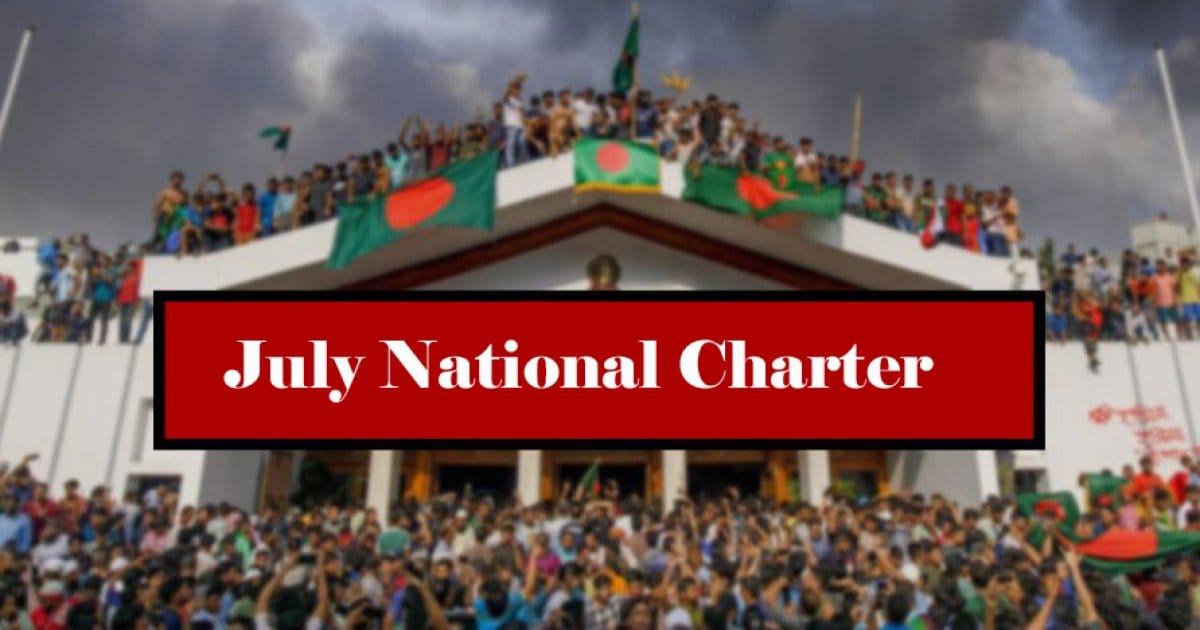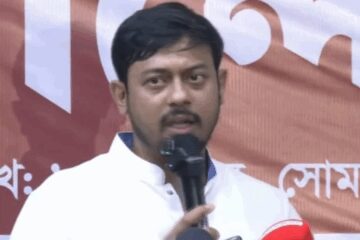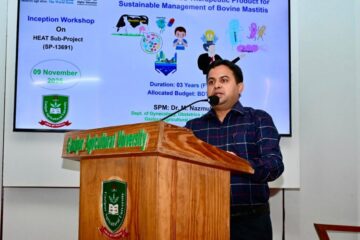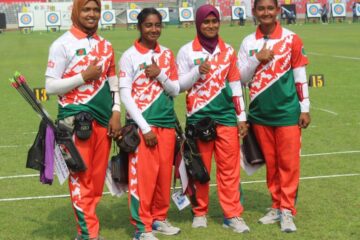Disagreement over the timing of a national referendum on the July Charter has plunged Bangladesh’s political landscape into uncertainty, with signs that Chief Adviser Dr Muhammad Yunus may soon intervene decisively.
The Bangladesh Nationalist Party (BNP) has proposed holding the referendum on the same day as the upcoming national election in February.
In contrast, parties such as Bangladesh Jamaat-e-Islami and the National Citizen Party (NCP) are demanding that the referendum be held beforehand, arguing that public opinion on the Charter must be gauged before voters head to the polls.
The government is set to sign the July National Charter on Friday, but divisions persist among political parties over how it should be implemented.
In an effort to bridge these differences and dispel uncertainty ahead of the signing, Consensus Commission Chairman Dr Yunus convened an emergency meeting with leaders of major political parties and alliances on Wednesday.
Following the meeting, the Left Alliance announced that it will not sign the charter, citing unresolved concerns.
Meanwhile, NCP leader Akhtar Hossain said that the party’s decision on signing the July Charter is still under review, with no final confirmation yet.
Even within the government, different departments remain divided over the referendum timeline.
The July Charter signing ceremony is scheduled for Friday at the South Plaza of the National Parliament, with at least 30 political parties expected to attend.
Commission awaits direction
The National Consensus Commission, which originally proposed the referendum, is preparing to send a formal letter to the government suggesting possible dates.
However, senior government officials have yet to signal their preferred timeline.
Commission member Professor Dr Badiul Alam Majumdar confirmed that discussions are ongoing but inconclusive.
“We have not made any decision on when the referendum might be held,” he said Tuesday evening.
Commission insiders acknowledge that both camps present valid arguments.
Proponents of an early referendum say it would allow parties to focus on public engagement and build momentum for the charter. Holding it alongside the election would reduce its visibility, as parties would prioritize their electoral campaigns.
BNP holds firm
The BNP Standing Committee, chaired by Acting Chairman Tarique Rahman, met Monday night and reaffirmed its stance: the referendum should coincide with the national election.
BNP leaders, including Secretary General Mirza Fakhrul Islam Alamgir and Standing Committee member Salahuddin Ahmed, have dismissed the idea of an early referendum as a ploy to delay the polls.
“We believe the referendum on the July Charter should be held on the same day as the national election. That is the BNP’s position,” said Standing Committee member Iqbal Hasan Mahmud Tuku.
Fakhrul warned that if the government deviates from the agreed terms, the BNP may boycott both the referendum and the election.
“We were not in favor of a referendum on the July Charter, but for the sake of unity, we agreed—on the condition that it’s held on election day,” he said.
Technical and political concerns
An Election Commission official, speaking anonymously, questioned whether the EC has the capacity to organize a referendum before the national polls.
Meanwhile, Nagorik Oikya President Mahmudur Rahman Manna dismissed concerns over cost, saying the estimated Tk2,000–2,500 crore for both events is manageable.
Another commission member noted that no decision is expected before Friday.
“The process is very complex,” he said.
“Political parties are inviting great risk by quarrelling over minor issues.”
A member of the Constitution Reform Commission hinted that a religion-based party may be seeking to delay the election for strategic gain.
Jamaat urges consensus
Jamaat Secretary General Professor Mia Golam Porwar struck a conciliatory tone, urging dialogue over confrontation.
“Why think negatively? If political leaders can reach consensus, everything is possible,” he said.
Jamaat prefers a pre-election referendum to avoid confusion and technical complications.
“If voting is held on one day and polling is suspended at some centers, what happens to the referendum results? These are the issues we want to avoid,” Porwar explained.
He also criticized what he described as the ego of a single political leader obstructing consensus.
“Democracy’s beauty lies in dialogue, not in stubbornness,” he said, calling on chief adviser to ensure a participatory process.
Yunus’s role under scrutiny
BNP and Ganatantra Mancha leaders said that Dr Yunus has remained largely silent on the issue.
However, after returning from a recent UN visit, he is reportedly in a “much stronger position.”
“If Dr Yunus swiftly issues a gazette on the referendum, political parties will have little room to maneuver,” said a senior BNP source.
“If they refuse to cooperate, he may be forced to act more firmly.”
The same source suggested that Yunus’s UN remarks about the Awami League were intended to pressure Jamaat-e-Islami.
“If he moves ahead with the referendum through gazette notification, it will signal a display of firmness. And if political disputes alienate the public, it could impact the national election,” the source added.
A senior Ganatantra Mancha leader echoed this view: “The government means Dr Yunus—he is a man of few words. He may simply issue a gazette, believing there is infinite power among the people waiting to be awakened.”
Calls for unity
Ganosanghati Andolon leader Zonayed Saki emphasized the need for consensus: “Whatever is done should be based on agreement among all parties.”
Jatiya Nagorik Oikya’s Mahmudur Rahman Manna said his party had not yet received a formal proposal from the government.
“Once we do, we’ll assess its intention, maturity, concerns, and potential. Only then can we comment.”
Manna personally sees little difference in timing but warned that holding the referendum on election day could dilute its significance.
“Still, we’ve coordinated our position with the BNP,” he added.
As the political clock ticks toward Friday’s high-profile signing ceremony, the question of when—and how—the referendum will be held remains unresolved.
All eyes are now on Dr Yunus, whose next move could reshape the course of Bangladesh’s electoral roadmap.



